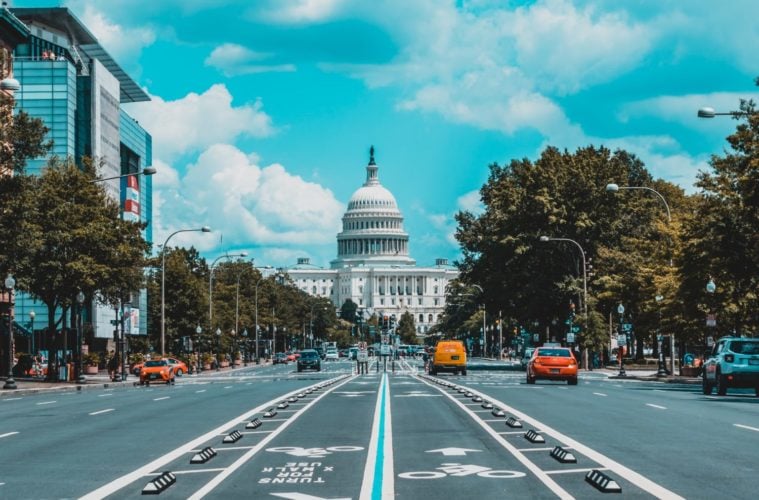With cannabis reforms quickly making an appearance in the new Congress, we’re taking a look at the stakeholders contributing to what federal legalization will look like.
We generally knew this was coming. As we noted in recent weeks, even before they’d control both houses of Congress, Democrats managed to put cannabis in an impressive position. Once they came to power, we knew it was a matter of when the ball would start rolling, not if. And we’ve certainly got our answer faster than most would have expected.
Since the Democratic leadership in the Senate announced their plans last week, we’re already seeing stakeholder meetings. But who is at the table? Well, we’ve heard from some of the people in the room.
Marijuana Moment reported last Friday that Senate Majority Leader Chuck Schumer had held a stakeholder conference that day. This is important because in announcing the plan in the first place, Schumer said stakeholders would contribute the bricks the bill would be built out of.
Schumer took to Twitter on Saturday and said he had a productive meeting with fellow senators championing the issue and the “leading marijuana justice groups from across the country to strategize about working together to end the federal prohibition on marijuana and repair the damage done to communities by the War on Drugs.”
He went on to thank NORML, the Drug Policy Alliance, the Leadership Conference on Civil and Human Rights, ACLU and the Minority Cannabis Business Association by name for their efforts to end the federal prohibition on marijuana “and ensure equity for communities – especially those of color – impacted by the War on Drugs!” Schumer also alluded to even more stakeholders that would be weighing in.
One of the folks in the room was Shaleen Title. Title served from 2017 until recently as one of five commissioners on the Massachusetts Cannabis Control Commission tasked with creating and regulating the Bay State’s legal market. Title was one of the main proponents for equity in the cannabis industry in Massachusetts, the state home to the city with the last MLB team to integrate African Americans into the lineup. Despite reasonable arguments, progressive conversations around race and policy may have fallen on deaf ears in the past in Massachusetts. Title was one of the people able to help bring at least some justice to the state’s cannabis industry, even though it’s being challenged in the courts.
Title said NORML got her into the meeting on Monday, and said the Senators deferring to the experts on the issue was inspiring. She said on Twitter she was feeling optimistic and hopes the movement is ready to work.
We reached out to Title and asked her what the biggest takeaway from Friday was for her and other advocates.
“I was impressed by the senators’ understanding that equity and restorative justice must be central in any federal marijuana legislation, and by the collaborative approach they are seeking to take with the people’s movement,” Title told L.A. Weekly.
There was further news on Monday about folks organizing to take part with the announcement of the United States Cannabis Council. As noted by Politico, the organization includes policy and business organizations – just none of the ones mentioned by Schumer on Saturday.
One organization that was in the room on Friday, despite not getting a shoutout from Schumer, was the National Cannabis Industry Associated. While the NCIA Media Relations Director Morgan Fox didn’t want to get into the specifics of the closed-door meeting, he was willing to speak to the vibes of progress that are certainly feeling strong amongst himself and fellow advocates.
He said the first takeaway is that the senators want to take their time and do it right, and the people that participated Friday are essentially the first round of folks that will get to contribute to what’s to come.
“At least that’s the impressions that I’ve gotten so far,” Fox told L.A. Weekly. “I think that there’s going to be opportunity for broader consensus gathering and as far as I can tell everybody seems to be rolling in relatively the same direction in terms of what they want comprehensive de-scheduling legislation to look like, including social equity provisions and various other criminal justice reforms.”
As the different stakeholder groups emerge, we asked Fox how much everyone sees eye to eye on the general plan moving forward.
“I think everybody kind of wants the same thing,” he replied. “There’s just some, like, I wouldn’t even say disagreement. But everybody’s trying to figure out the best way to get what we all want for sure. That’s just my impression based on previous discussions, not anything that I learned about that meeting on Friday.”
We asked Fox if all the eggs were in one basket or if there are still chances to move the chains separate from whatever the Senate comes up with.
“I think there’s a lot of opportunities to move incremental stuff while we still make progress on the comprehensive legislation as well,” Fox replied. Speaking to banking reforms specifically, Fox said that could end up being a standalone bill or getting included in the next coronavirus package. “But it’s being worked on in the House, which is looking like it could be a real strong possibility again. And then there’s all the other tiny little things which are so important. VA access, removing barriers to research. We haven’t heard too much talk about standalone legislation yet but it’s possible that it could come up.”
Fox expects anything outside the scope of the Senate efforts is going to be focused primarily on research and banking in terms of the incremental moves, while the comprehensive bill is being developed in the Senate.
Advertising disclosure: We may receive compensation for some of the links in our stories. Thank you for supporting LA Weekly and our advertisers.

